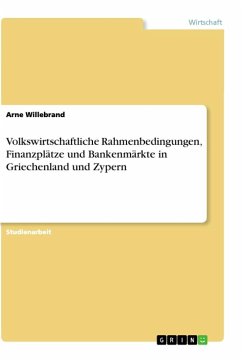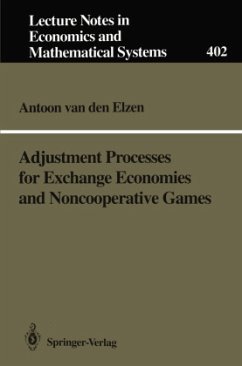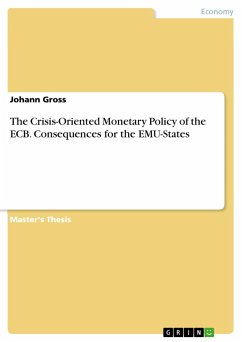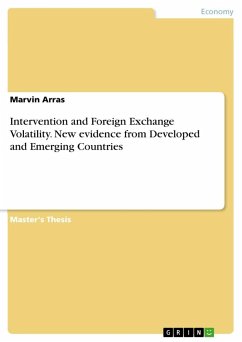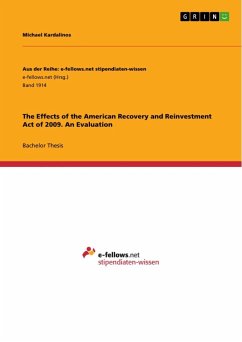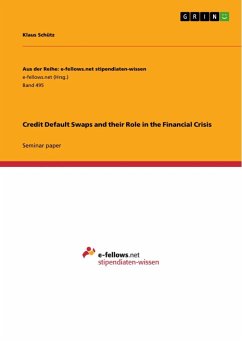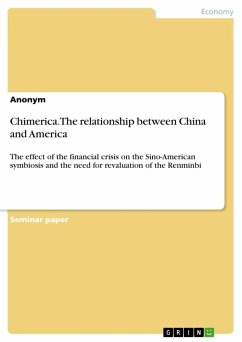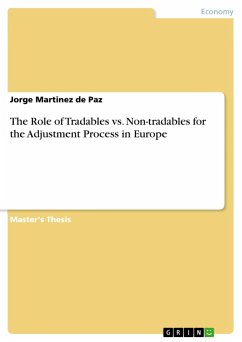
The Role of Tradables vs. Non-tradables for the Adjustment Process in Europe

PAYBACK Punkte
0 °P sammeln!
Master's Thesis from the year 2012 in the subject Economics - Other, grade: 2,0, Free University of Berlin (Institute Director and Head of Economics Department John F. Kennedy Institute for North American Studies), language: English, abstract: This paper analyses macroeconomic imbalances within fixed exchange rate systems as the European Monetary Union. The leading question is explaining why during the years after the financial crisis of 2007, Institutions such as the European Commission and the IMF made policy recommendations aimed at shifting production resources from the non-tradable to the...
Master's Thesis from the year 2012 in the subject Economics - Other, grade: 2,0, Free University of Berlin (Institute Director and Head of Economics Department John F. Kennedy Institute for North American Studies), language: English, abstract: This paper analyses macroeconomic imbalances within fixed exchange rate systems as the European Monetary Union. The leading question is explaining why during the years after the financial crisis of 2007, Institutions such as the European Commission and the IMF made policy recommendations aimed at shifting production resources from the non-tradable to the tradable sector; especially in countries with large current account imbalances and low competitiveness. Inferring that not accomplishing such a reallocation of production resources will yield a major 'pain of adjustment', the paper investigates the role of the non-tradable sector size in the European adjustment process. The mentioned 'pain of adjustment' plays a central role and is understood as the time and/or the contraction required for reaching a certain level of external balance in terms of social costs, most notably unemployment. The conclusions are based on a graphical modification of Krugman and Obstfeld's (2006) model conceived for explaining the rigidities of the Bretton Woods system of fixed exchange rates and suggest that deficit countries with underemployment attempting to reach external and internal balance can reduce the 'pain of adjustment' by fostering the tradable sector to the detriment of an oversized, uncompetitive and low productive non-tradable sector.




